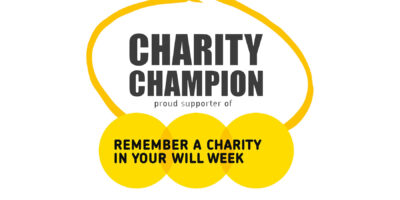Photo credit: Lina Trochez
Why gifts in wills are so super, and how to get further help and peer support.
Legacies are the most cost effective way of raising money for charities. For every £1 spent on fundraising for legacies, the payoff is better than any other channel, even fundraising for grants from trusts and foundations. It is also less volatile than other streams of fundraising. During economic downturns people are less likely to change their will than cancel a direct debit or tighten institutional purse-strings.
How to get support and learn more:
The Institute of Fundraising has a Legacy and In Memory peer support group. The content, insight, and support from other fundraisers from all sizes of charity is unparalleled. Go here: https://uk.groups.yahoo.com/neo/groups/Legacymarketing and ask to join.
The Facebook group for general fundraisers often has discussions about gifts in wills: https://www.facebook.com/groups/1686147658271694/ .
Remember a Charity have a subscription service for their resources and pooled campaigns. The cost of this is based on the size of the charity. Access affords participation in Remember a Charity Week and access to their intranet containing resources about gifts in wills. https://www.rememberacharity.org.uk/
Here at Make a Will Online we work with dozens of charities with our free wills campaigns. We are expert will writers rather than fundraising consultants – we deliver solicitor-checked wills to your supporters. You are welcome to get in touch with us to discuss your needs. Just contact us and ask for Oliver.
Finally, consultants and researchers can and will help your efforts around messaging your supporters and getting gifts in wills.
More info about gifts in wills:
The amount of gifts in wills has been growing above the rate of inflation for a long time. It was worth £2.6 billion a decade ago, and £3.6 billion per year now. The increase is based on:
- increased awareness and generosity: so more people giving gifts in wills, and
- a steady increase in the value of assets such as homes.
The forecast is that this trend will increase. More and more baby-boomers have put gifts in their wills. Campaigns like Remember a Charity week take hold in the national consciousness. Finally, property values will increase or plateau.
Interestingly, each year supporters leave gifts in wills to more smaller charities. Your educated donors are more likely to leave a gift to a charity that has personal meaning for them. They also give to a range of charities, with some large/ national and others more local or focused. So, if you are a smaller charity, you are in a great position to make the most of the growth.
Fundraising for gifts in wills need not be complex affair. Just drip-feed the message in communications so it’s always in a supporter’s mind. Your supporter will know it’s a possibility when they finally get round to making a will. Another fundraising favourite for gifts in wills is a simple bookmark. Having a story of the work that gifts in wills have helped you achieve is a winner. Alternatively: a personal story from someone who can share their reasons for making a gift in their will is a great start too
Gifts in wills tend to provide income to a charity a number of years down the line. If you can ascertain who has left a gift in their will you can build close relationships with them. These supporters hold your cause in extremely high regard.
It is never possible to guess when you’ll receive money following a pledge. You can try to work it out. Unless you have very high numbers of gifts in wills each year this is very tricky.


